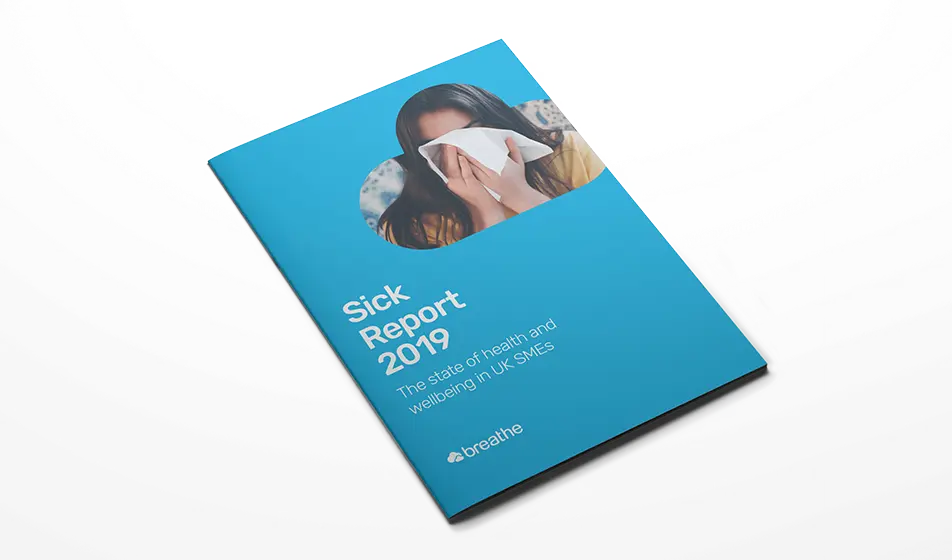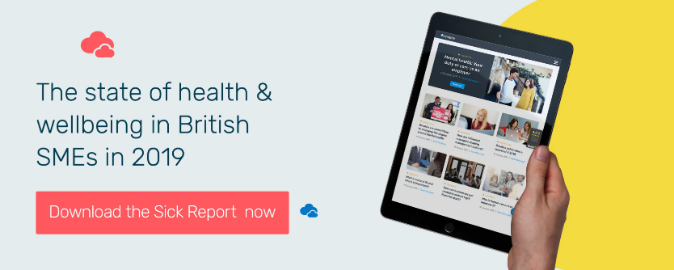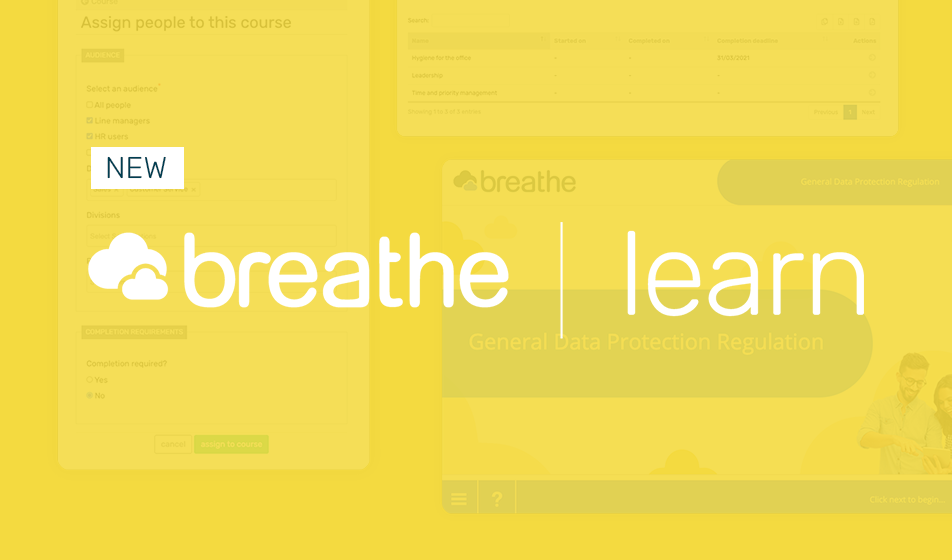Our survey of more than 1,500 employees and SME business leaders reveals that stigma around mental health struggles and burnout is costing the UK economy £1.4bn a year through unexplained sick days.
Sickness and absence – trends in 2019
Two years ago, we published the first Breathe Sick Report to examine the reasons why employees of the UK’s small businesses are taking time off due to ill-health. The report – which was based on market research we conducted – generated a lot of interest from employers, as well as their team members and is still one of our most popular online resources. It seems everyone has an opinion about workplaces absences and the effect these have on businesses and their workforces.
Sickies and unexplained absences
It was no surprise to see flu, colds and viruses topping the list of genuine reasons for absences but what stood out was the number of people pulling sickies and reporting themselves unwell when – by their own admission – they were actually well. With 7.5 million ‘sickie’ days pulled by UK SME employees, the cost to UK businesses in 2017 was £900 million. No small beer.
The reasons why people pulled sickies varied but the need for rest days as the result of stress and conflicts with colleagues stood out and raised several important questions. Were people under so much pressure to perform that they suffered from burnout? Did they fail to take enough holidays and suffered poor health as a result? Were people working in toxic environments where they would rather stay at home rather than deal with workplace disagreements?
Attitudes toward mental health
In preparing the 2019 Breathe Sick Report, we decided to delve a little deeper and see how absences related to stress and mental ill-health compared with those taken for physical illnesses.
In particular we wanted to see how comfortable (or not) employees felt reporting themselves absent to managers due to mental health issues, and if they felt taking time off due to these was acceptable. At the same time, we also wanted to examine employers’ attitudes to mental health related absences.
We found that three quarters of decision makers said they consider consider mental health issues to be an acceptable reason for absences. This is highly encouraging. That the UK’s SME owners and managers are so enlightened and supportive of people is very welcome news.
The views of their employees, on the other hand, paint a slightly different picture and one which suggests that employers still have a way to go in communicating that team members who talk to them about their mental health will be treated sympathetically.
A significant number (40%) of employees remain uncomfortable telling their managers they need to take days off due to mental health reasons. Worryingly, nearly a quarter (23%) of employees admit they would rather take an unexplained sick day than discuss their issues with their employers. If anyone is going to lie about the real reasons they are taking time off for ill-health, it’s these people. Are they taking ‘sickies’ or cloaking the genuine reasons for calling in sick?
Mental health stigma and the impact on UK businesses
We factored the cost of sickies to UK small businesses into our research findings and examined the reasons why. It brought us to the following conclusion:
stigma around mental health struggles and burnout costs the UK economy £1.4bn a year through unexplained sick days.
The need for clearer communication
To us, our research underlines the fact that UK SMEs need a more proactive approach to reassuring their people. They need to actively show support and that it is no longer necessary to hide behind ‘flu’ and ‘colds’ when they are, in fact, suffering from mental health issues.
The change in employer attitude and surge for open-mindedness and understanding is undoubtedly helping. It’s also encouraging to see more high-profile people talking openly about their own mental health experiences in the media than ever before.
SME agility and cultural development
Small business can be much more agile than their larger competitors and can move quickly to establish supportive workplace cultures where employee mental and physical wellbeing are given equal precedence. In fact, we believe that UK’s 5.7 million SMEs can lead the change in terms of supporting emotionally vulnerable employees and set the standard by which organisations of every size will be judged in the future. The journey is far, far from over but the signs are that we are moving in the right direction.
Download the 2019 Breathe Sick Report
The full 2019 Breathe Sick Report explores our research findings in detail and includes analysis from leading industry experts including Sanctus and Engage Healthcare. Download your copy of the report now.
.webp)
Author: Sarah Benstead
Sarah is a Product Marketing Specialist here at Breathe. Always innovating, she loves writing about product releases in an engaging & informative way. When she's not coming up with new ideas, she enjoys long walks with her dog, Clifford.



-1.png)
.png)